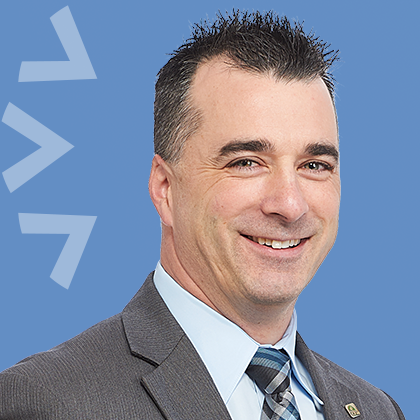6 simple answers to make estate planning easy
Start now to safeguard your lasting legacy.
You’ve heard the classic saying, “Death and taxes…” Nobody likes to discuss either, but these are two certainties in life. What’s also true is that the more we plan for both, the better off we are.
We accumulate personal possessions, financial assets and even real estate over the course of our lives. Whether we’ve built up a lot or a little, there is one thing we all have in common — you can’t take it with you when you pass away.
Here are the some frequently asked questions and answers to help plan for the future.
1. What exactly is estate planning?
Estate planning is simply coming to terms with one simple truth — mortality — and preparing accordingly by naming the people who’ll receive your belongings after you pass on.
Everyone needs to make this plan, and you shouldn’t wait for retirement to open the discussion. A common misconception is that estate planning is only a beneficial strategy for the wealthy. However, the truth is that families with even modest assets can see a benefit, as anyone can lose assets or fail to reduce financial concerns due to lack of planning.
We can’t predict when a tragedy will occur, so an estate plan becomes very important for loved ones. Start now, as there’s no need to wait and there are efficiencies to be gained. By taking this proactive step, you’ll be in control of how distributions are made and how your estate will most efficiently deal with that last tax bill.

2. What items should I consider?
This is a huge step where a professional advisor can identify your vision to ensure your assets go to those you care for. Your advisor can assist you along the way, and help you execute this vision
Some common estate planning considerations include:
- Naming a guardian for your minor children: Don’t forget to select someone to be the trustee of their inheritance as well.
- Naming beneficiaries of your assets: You have physical assets and valuables to inventory, but there are financial assets to consider as well. For example, your beneficiaries will have financial responsibilities and you may have to consider extra arrangements for future financial protection for them. They may not be prudent with finances, or they may require extra attention due to trouble with creditors or life’s circumstances and changes, such as divorce.
- Real estate: Do you wish to pass a home, piece of property or cottage on through your estate, for instance?
- Your business: Are you self-employed? Who will take over your business if you’d like it to continue to operate?

3. Will there be any additional expenses?
When considering your legacy, it’s important to identify opportunities to keep as much of your assets in the hands of your family. This helps avoid erosion of assets due to taxation or the cost of probate. In some instances, these costs are unavoidable, but your planning puts you in control.
If you can identify the future cost of taxation to your estate, you can decide on the extent to which you’d like to offset that cost to your family with the addition of insurance protection.
There are steps that can be taken at this stage, such as the implementation of insurance strategies. You can also properly aligning beneficiary designations, which can make a significant impact on estate cost reductions.
4. When do I involve my lawyer?
Once you have a clear plan, you can formalize this with the assistance of your attorney.
It’s recommended that you seek legal assistance to draft your will. If you do not get to this final step, you run the risk of passing away “intestate” — that is, passing away with no clear directive of how to distribute your estate assets.
Those that pass intestate can subject their beneficiaries to a longer and more expensive process where the estate assets are distributed according to the court’s standard template of asset distribution.

5. What decisions can I make now, so my family won’t have to later?
Do you know if you’d prefer to be cremated or buried? Do you know where you’d like your final resting place to be? If you do, that’s great — but do your beneficiaries know?
Another estate consideration that often gets left to the ones you leave behind is making funeral arrangements. Often, those loved ones must make these decisions during a very difficult time.
As is the case with most things, the sooner you plan your funeral, the more cost-effective it will be. So it’s best to make all the necessary arrangements beforehand.
6. When do I need to start planning?
Start this year. If you are a young family or a single adult, you can start with a simple will and some term life insurance. As you continue to accumulate more or over time, you can expand your planning.
If you have reached retirement already and still do not have a will, don’t wait any longer. Wills can be changed — so don’t procrastinate if you’re unsure of how to proceed.
Get in touch with your financial advisor to ensure your financial planning discussions have taken your estate planning needs into consideration. Then talk to your lawyer who can help get your will started. You’ll have peace of mind knowing that your wishes will be properly executed.
This is one of the most thoughtful things you can do for those you love, and it will be a burden lifted in a time of grief and stress.

Mutual funds and other securities are offered through Aviso Wealth, a division of Aviso Financial Inc.
Online brokerage services are offered through Qtrade Direct Investing, a division of Aviso Financial Inc.
The information contained in this article was obtained from sources believed to be reliable; however, we cannot guarantee that it is accurate or complete. This material is for informational and educational purposes and it is not intended to provide specific advice including, without limitation, investment, financial, tax or similar matters.

Aviso Insurance Inc. offers financial planning, life insurance and investments to members of credit unions and their communities.
Aviso Insurance Inc. is an indirect wholly-owned subsidiary of Aviso Wealth Inc., offering financial planning, life insurance and investments to members of credit unions and their communities.
Responsible investment (RI) is defined as the integration of environmental, social and governance (ESG) factors into the selection and management of investments. Shareholder activism and corporate engagement have subsequently become common place. At ACU our Responsible Investment Specialists are here to educate and assist our members with this Investment Philosophy.
The information contained in this article was obtained from sources believed to be reliable; however, we cannot guarantee that it is accurate or complete. This material is for informational and educational purposes and it is not intended to provide specific advice including, without limitation, investment, financial, tax or similar matters.
Up Next
Sustainability: How ACU is turning words into action
A hand holding a seedling
For ACU, Pride radiates outward
“I’ve always wanted to instill a change in the world for the better,” says Cristina McCourt, Financial Account Manager Trainee and member of the ACU Pride Committee, an employee-led resource…
Royal Aviation Museum travels to its final destination—with ACU’s help
A stone’s throw from the main terminal of Winnipeg Richardson International Airport you’ll find one of Canada’s hidden gems, where the airplanes are a little more exciting than your typical…




